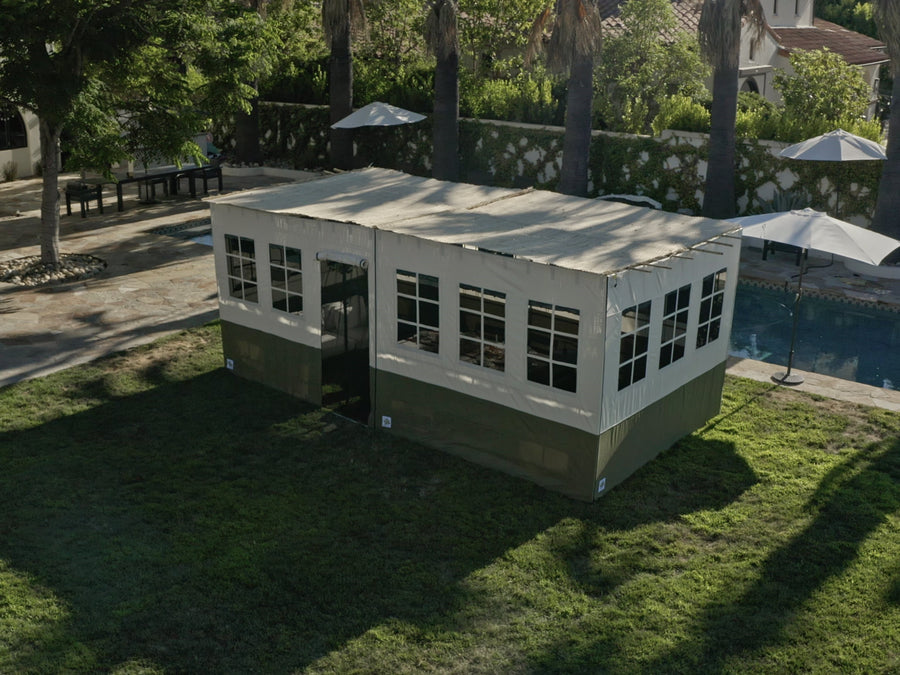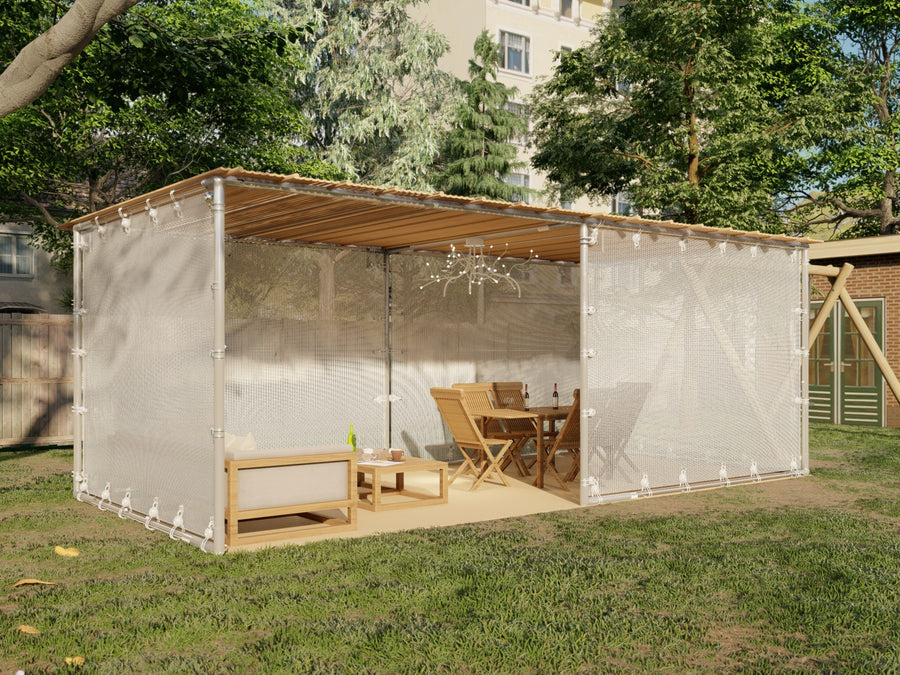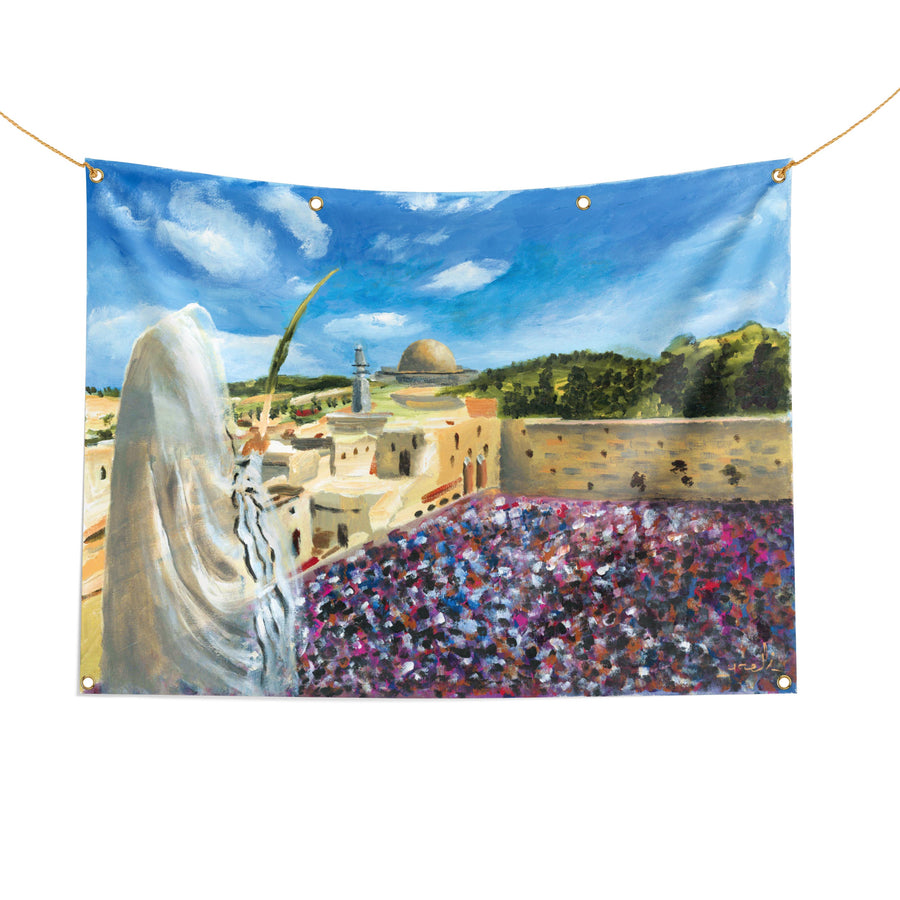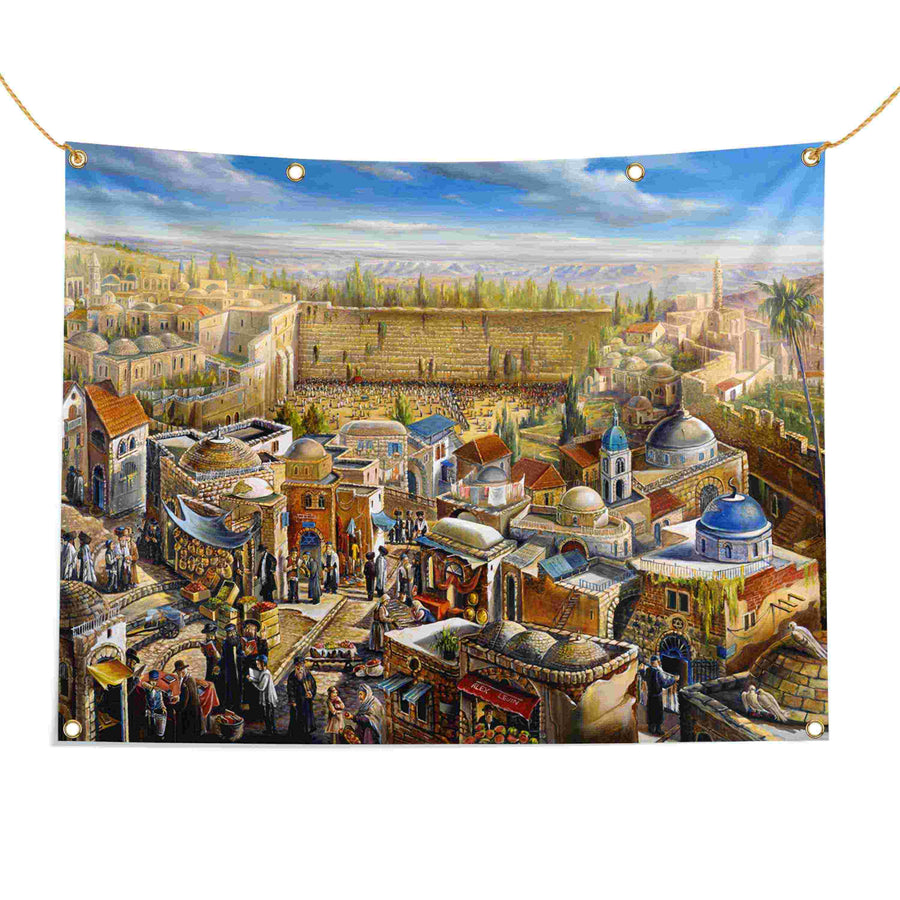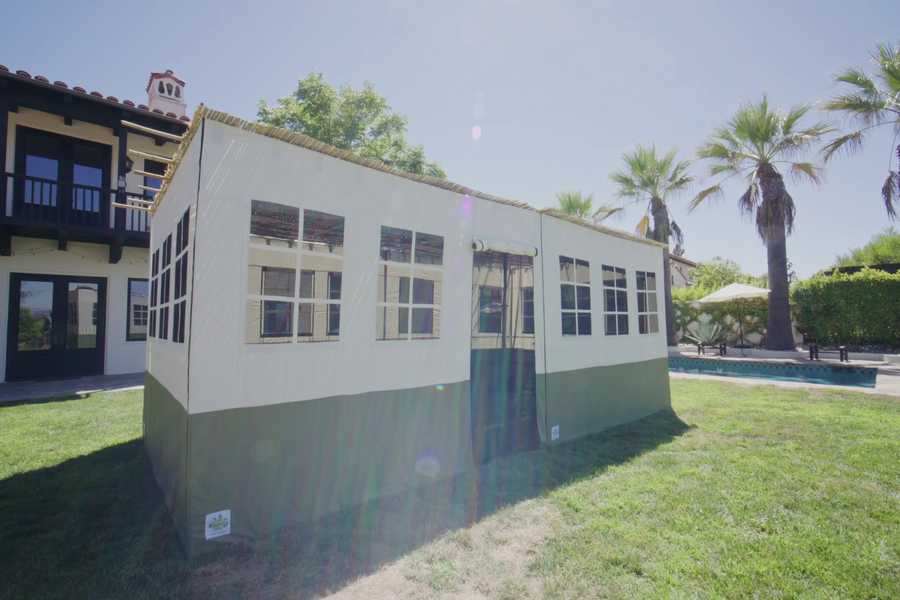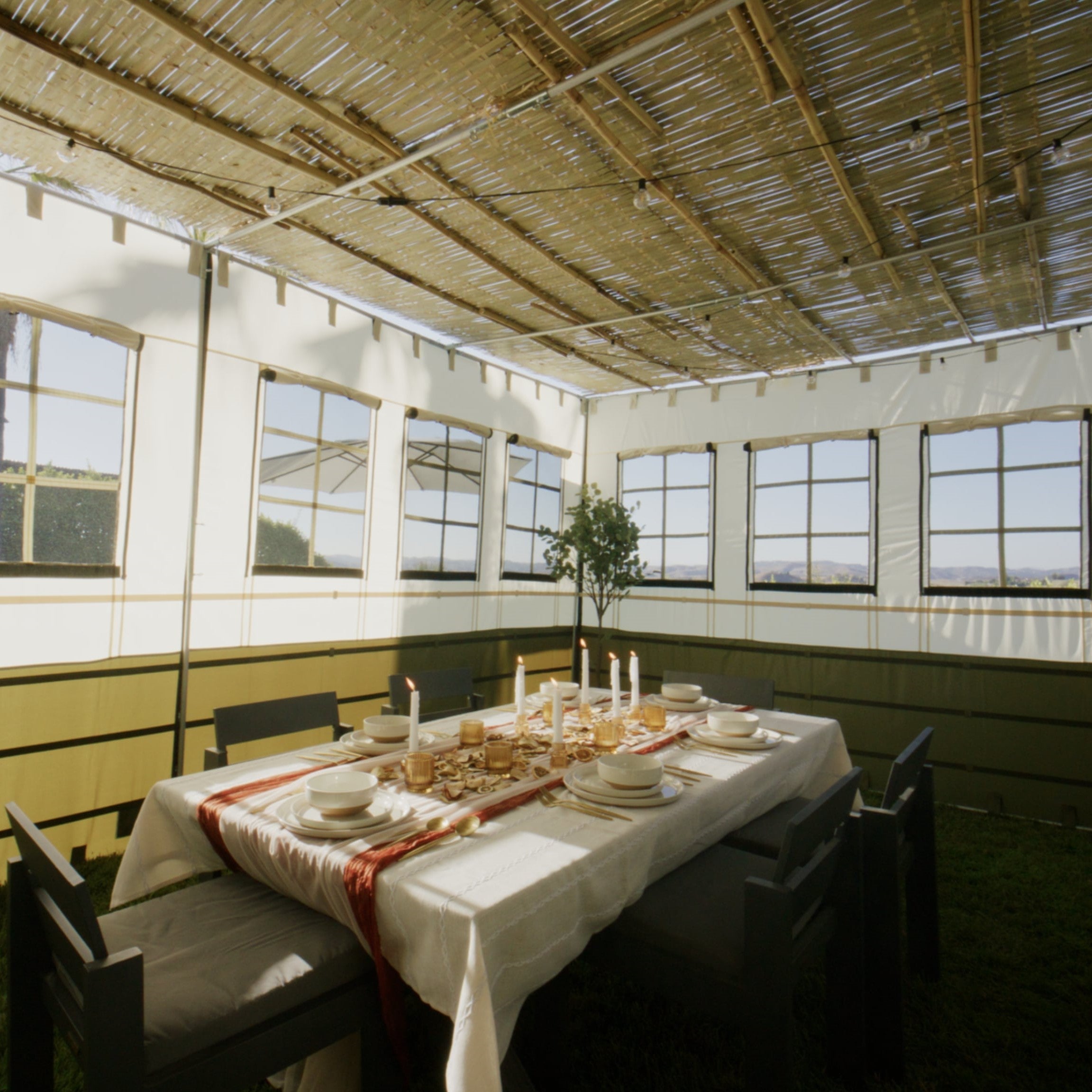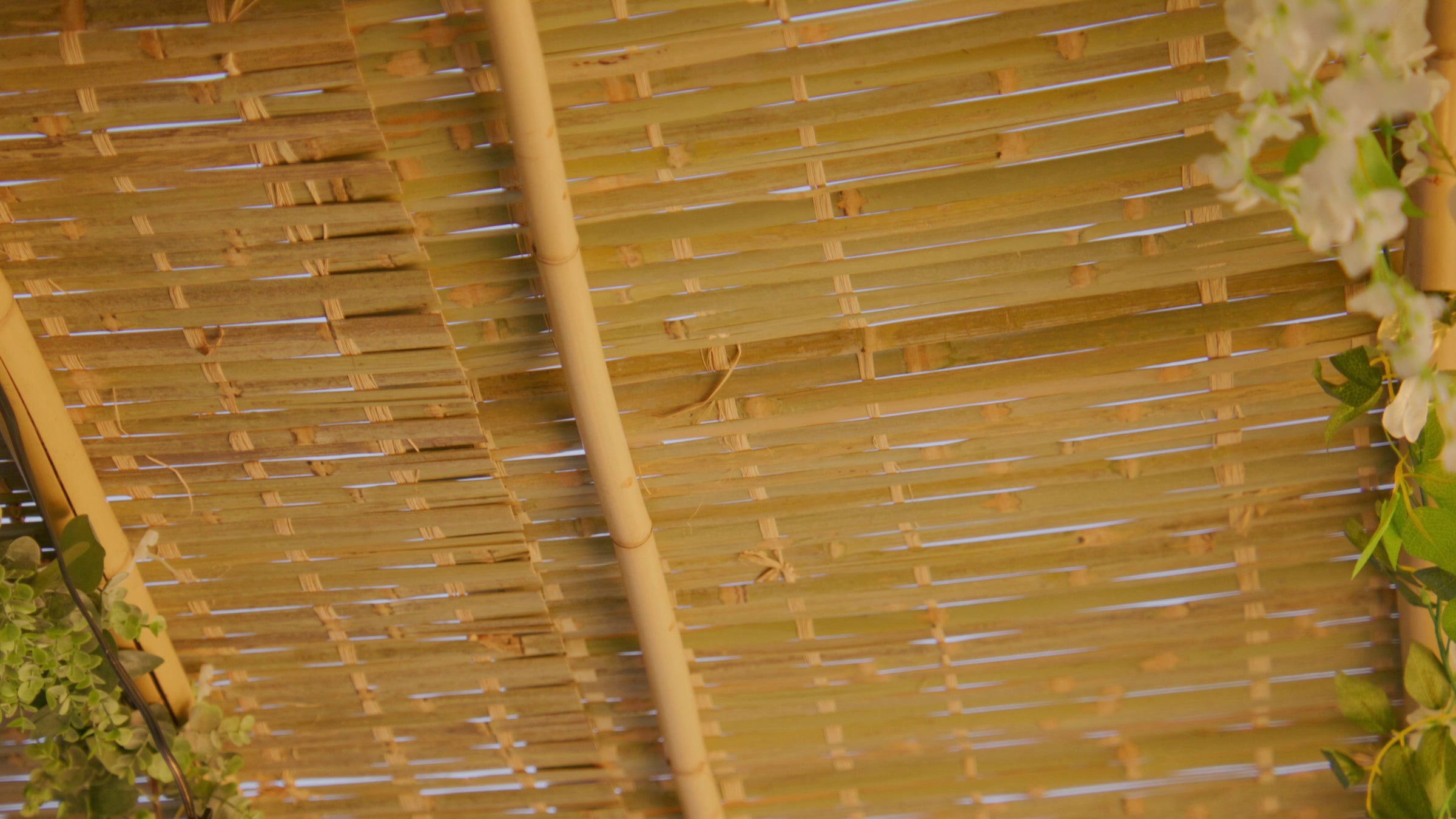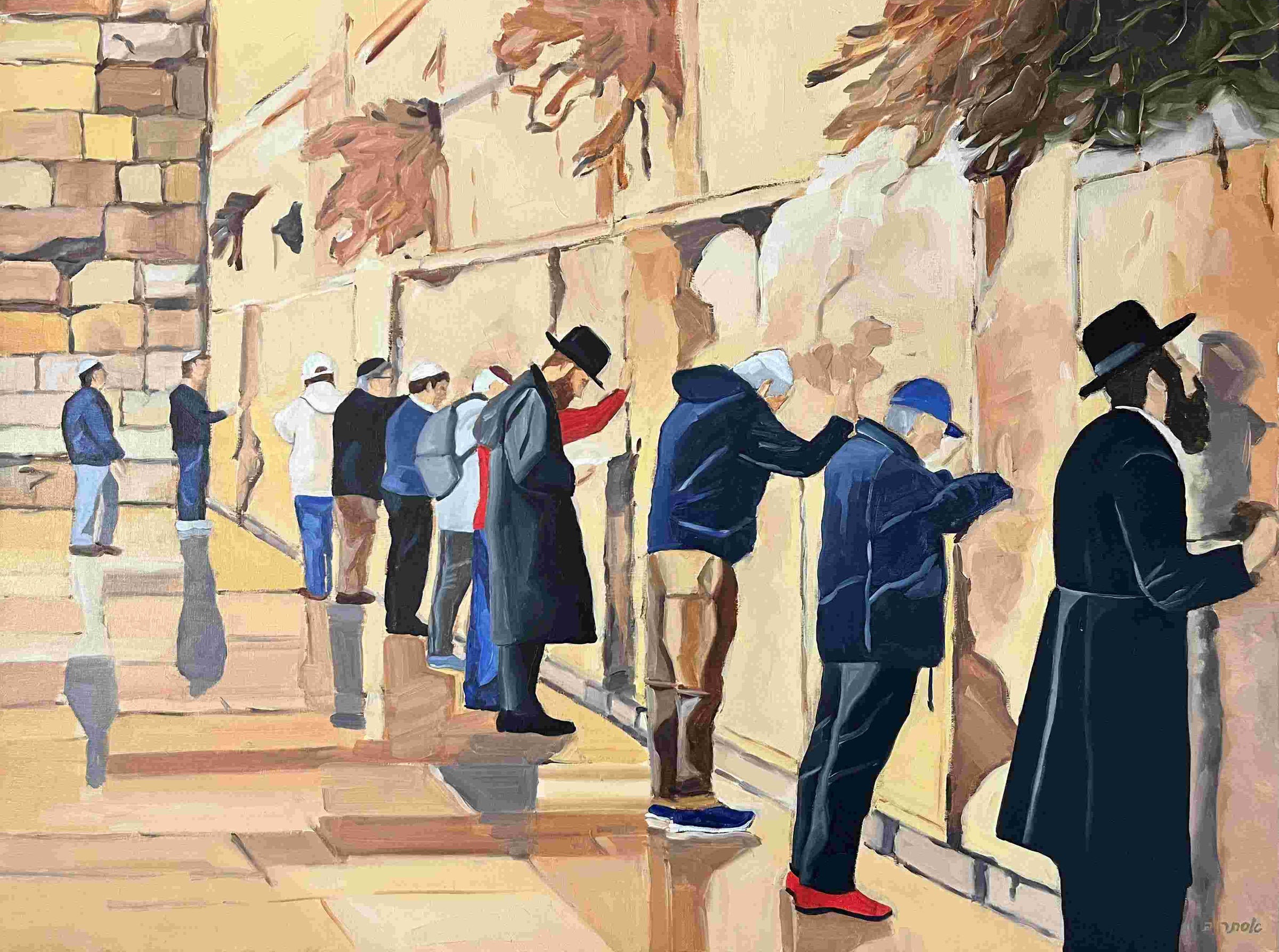

Table of content
So, imagine this: G‑d, the ultimate DIY Sukkah enthusiast, could have gone all out and built the people of Israel some fancy, permanent homes in the wilderness. But instead, He opted for the miraculous Sukkah , formed by His clouds of glory. But why? What’s the significance of a Sukkah ? What is a Sukkah really?
Why Temporary Dwellings?
Why settle for temporary digs when you’ve got divine power at your disposal? It’s simple. The people of Israel sitting in the Sukkah during their 40-year trek in the desert was to become a cosmic lesson for the ages. G‑d wanted the Israelites, and all future generations, to know that the only real, enduring home is the one built by Him. It’s like the celestial version of, “If you want something done right, do it yourself.” As Psalms 127:1 puts it: “And if G‑d does not build the house, then those who build it work for naught.”
…more on building your Sukkah in our ultimate collection of how-to guides:
Sukkot in Small Places: Your Guide to Building a Balcony Sukkah
Conquering the Canopy: Your Essential Guide to Proper Schach Installation
The Power of Divine Will
Consider this: If G‑d wants, He can turn an evil home into a subterranean studio apartment in the blink of an eye – just ask the folks from S'dom and Amorah, whose wicked homes were destroyed. Need a quick escape route from bondage? He can split the sea for you. Fancy a habitable desert oasis, complete with clouds to shield you from the rain while you wander? He can make it happen.
Pharaoh’s False Security Blanket
Remember Pharaoh? Pharaoh and his nation were the mightiest power on earth at that time. Replete with wealth and strength; they felt secure – not least because of their huge fortress complexes – Pitom and Ramses. They built Pitom and Ramses and declared, “No man will dare invade our territory and no man will leave Egypt without our consent. The great river belongs to us – the Nile is our god and the source of our sustenance!”
Oh, the hubris. Enter G‑d, stage left, who shows the Egyptians a thing or two about real power. As Yitro wisely noted, “Now I know that Hashem is greater than all gods” (Exodus 18:11). One of our great Sages, the Mechilta, explains this as follows: No slave could ever escape from Egypt, for it was completely sealed. But now, G-d took six hundred thousand men out of Egypt.
At this stage in history, the Israelites of that generation were not exactly faith superstars – they had pretty much hit rock bottom on the spirituality scale, lingering at level forty-nine of defilement. They thought strength was reserved for the mighty, security was for the rich, and ruling was for the tyrants. All they wanted was for their slavery to be a bit more bearable, so they could blend in with the Egyptians.
That’s when G‑d came through on His promise to Abraham, Isaac, and Jacob. The Almighty swooped into Egypt, pulled them out, scrubbed them clean of their abominations, and flexed His almighty, redeeming hand, once and for all revealing the power of the one, true G-d.
The Sukkah and Lessons in Divine Dominance
The ultimate powerhouse of the time crumbled before the Egyptians, and the natural order took a back seat. But G‑d’s spectacular show of force wasn’t just for kicks. It was a masterclass in divine dominance, teaching the Israelites to ditch their misguided beliefs and trust in Him alone.
Let’s break it down:
Nile? Not a G‑d. G‑d turned it into a river of blood.
Houses? No protection. Frogs were everywhere, like a plague-themed Airbnb gone wrong.
Land? Unreliable. Lice turned it into a scratchy nightmare.
Nation? Not a fortress. Wild animals ran riot, making the cities look like a zoological free-for-all.
Livestock? Nope. G‑d’s Hand struck down all the cattle. Moo point.
So, next time you’re in your cozy Sukkah , remember the divine lesson from the wilderness. G‑d’s got the ultimate blueprint for security and protection, and it’s all about faith in Him.
Now, who’s up for some Sukkah-building?
